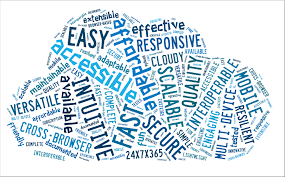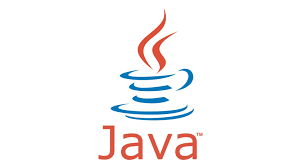BLOG
The Data Analytics Boom – A Fresh Start for Indian Freshers
The Data Analytics Boom – A Fresh Start for Indian Freshers In today’s digital age, data analytics has become a crucial tool for businesses to make informed decisions. It involves analyzing data to uncover insights that can transform marketing strategies, product launches, and customer experiences. As industries like finance, healthcare, and e-commerce continue to evolve, the demand for skilled data analysts has never been higher. At Arcus, we’re happy to share how data analytics is revolutionizing the job market for freshers in India. Here are some key highlights:- Why Data Analytics is a Great Career Choice for Freshers In conclusion, data analytics is a high-demand career path that offers freshers a promising future with good salaries and plenty of opportunities. Whether you have a coding background or not, data analytics is accessible and rewarding. Join Arcus today to start this successful journey and unlock your potential in the world of data analytics!
Top Insights on IT Jobs for Freshers in Today’s IT Job Market”
How freshers can make themselves a right, smart, and valuable asset is the secret of success in the software industry.

Choosing the Right Software Training for Freshers
how to choose the Right Software Training for Freshers? In the fast-paced world of Information Technology, making the right choice for your career is crucial, especially for freshers. IT training and IT career are serious. It is not like fashion and style. IT trends are serious and have a lasting impact on your career. Selecting the IT training is not like buying the latest model mobile in the market, nor choosing the trending garments. While the attraction of cutting-edge technologies like Machine Learning, Data Science, Artificial Intelligence, and Python is undeniable, freshers should approach their software training with a strategic mindset. In this blog post, we’ll discuss why opting for Java and Software Testing training can be a prudent choice for freshers aiming to secure a stable and promising career in the IT industry. The Current Landscape The IT landscape is evolving rapidly, with technologies like Machine Learning, Data Science, Artificial Intelligence, and Python garnering significant attention. However, freshers need to be aware that job opportunities for entry-level positions in these areas are limited. Companies tend to prefer experienced professionals in these fields due to the complex nature of the work involved. Consequently, freshers often find themselves struggling to secure positions in these trending domains. Choosing a Strategic Path Given the challenges posed by the highly competitive job market, freshers need to make informed decisions when it comes to their software training. Java and Software Testing emerge as two evergreen options that can lead to substantial job opportunities. Here’s why: Java’s Dominance: Java has been a powerhouse in the IT industry for over 25 years. Its robustness, versatility, and wide range of applications have ensured its steady growth. Millions of projects still rely on Java, making it a highly demanding skill. MNCs actively recruit trained freshers in Java due to its continuous requirements.so java is the best choice for fresher placement. Software Testing Universality: Software testing is a critical aspect of the software development lifecycle, applicable to all programming languages. As long as the software is being developed, testing is always highly required. Freshers trained in software testing can find opportunities across various domains and technologies.in this point of view , software testing the best choice for freshers training and placements. Arcus Infotech’s Suggestion For freshers seeking a sure path to a promising career, Arcus Infotech recommends focusing on Java and Software Testing training. By choosing one of these options, freshers can increase their chances of landing highly-paid jobs in reputable companies. With over 20 years of experience, Arcus Infotech has been a trusted partner in guiding freshers toward successful careers. Conclusion In the dynamic world of IT, freshers must approach their career choices with practicality and foresight. While cutting-edge technologies like Machine Learning and Data Science are attractive, the job market for entry-level positions can be challenging. To ensure a steady and promising career, it’s wise for freshers to invest in software training that aligns with industry demand. Java’s enduring dominance and the universal necessity of software testing make these two fields excellent choices for those seeking job security and growth. With the right training, freshers can embark on a journey of success in the ever-evolving IT landscape. Are you ready to take the first step toward a rewarding IT career? Explore our Java training in Bangalore, Java training in Chennai, and Java training in Hyderabad, as well as our comprehensive software testing training in Bangalore, software testing training in Chennai, and software testing training in Hyderabad. Join Arcus Infotech, your partner in shaping a successful future in IT. visit our Instagram page to know training and placement details. https://instagram.com/arcus.infotech java training Java training software testing training Software Testing Training

Software Testing Types An Overview
Functional Testing Types Unit testing Integration testing System testing Sanity testing Smoke testing Interface testing Regression testing Beta/Acceptance testing Non-functional Testing Types Performance Testing Load testing Stress testing Volume testing Security testing Compatibility testing Install testing Recovery testing Reliability testing Usability testing Compliance testing Localization testing

Service Virtualization & Java
In a microservices architecture, one of the most important parts of a service is the module in charge of communicating with other services. You often need to test end-to-end how a service communicates with other services. Mocking is not a solution since it does not test the communication stack, and skips everything related to network protocol (i.e HTTP). Running the dependent service is not an option because of the effort required to prepare the process each time. Service virtualization is a technique used to simulate the behavior of dependencies of service by creating a proxy service, hence the test runs against a service (i.e. the full stack is tested) without booting up the real service. Hoverfly is an open source, lightweight, service virtualization API simulation tool written in the Go programming language and tightly integrated with Java.

Upgrading Java from 8 to 12
Since Java 8 a number of useful new language features have been introduced, along with new tooling, and performance improvements particularly for garbage collection. When choosing to upgrade the choice you face is whether to upgrade to the latest version of Java (12) and be prepared to upgrade every six months; or upgrade to the latest LTS (11) to give yourself up to three years to think about your next upgrade. Don’t be tempted to ignore compiler warnings. Deprecation is being taken much more seriously in this modern Java world, and both Java 10 and Java 11 removed APIs. One of the changes from Java 9 was that internal APIs (largely those classes in packages that started with sun.misc.*) were hidden from use. APIs that are not core to the JDK have also been removed in Java 11. These changes may impact your application but there is a clear path to avoid these problems. Once “over the hump” of this first upgrade, it’s worth at least testing the application on the latest version of Java every 6 months, for example in CI
GET IN TOUCH
CONTACT US
Hyderabad
Chennai
- No.37, Diya Complex, Tambaram Main Road, Next to A2B Restaurant Vijayanar Nagar bus stand, Velacherry, Chennai - 600042
- Chennai : 93827 29797
- Chennai@arcusinfotech.com
Bangalore
- #617, 1st Main Rd, near Silk board junction, 6th sector, HSR Layout, Bengaluru, Karnataka 560102
- Bangalore : 93423 29797
- Bangalore@arcusinfotech.com
